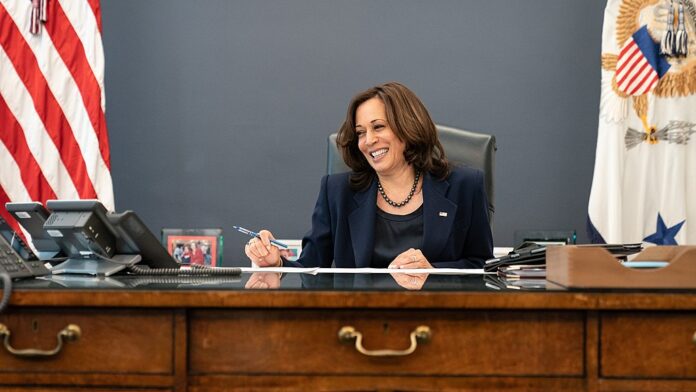Kamala Harris becomes the first black and Asian American woman to lead a major-party ticket, presenting a bold vision for America’s future in her acceptance speech at the Democratic National Convention
On August 22, 2024, Vice President Kamala Harris achieved a historic milestone by accepting the Democratic Party’s presidential nomination during the final night of the Democratic National Convention in Chicago. Her acceptance marks the first time a Black woman and Asian American has led a major-party ticket, underscoring a pivotal moment in U.S. political history.
In her keynote address, Harris framed the upcoming November election as the most critical in the nation’s history. She emphasized the stakes by contrasting her vision with that of her rival, former President Donald Trump. Harris painted Trump as a threat to democratic values and American freedoms, vowing to address what she described as the “extremely serious” consequences of another Trump presidency.
Embed from Getty ImagesHarris’s speech was a clear call to action. She promised a future focused on unity and progress, advocating for tax cuts for the middle class, improved border security, and the restoration of reproductive rights. Her address drew on her personal journey, from being the daughter of immigrants to her career as a prosecutor, underscoring her commitment to fairness and opportunity.
Harris’s acceptance speech was not just a personal triumph but also a strategic appeal to voters. By highlighting her background and vision, she sought to mobilize support around the values of freedom, compassion, and fairness. She framed the election as a choice between chaos under Trump and a renewed commitment to American ideals under her leadership.
The convention also showcased Harris’s gratitude towards supporters and donors. After her speech, she and Second Gentleman Doug Emhoff expressed their appreciation at Queenie’s Supper Club. Harris’s remarks reflected her deep connection to her campaign’s mission, while Emhoff praised her speech and looked ahead with optimism towards the election. He humorously noted their 10th wedding anniversary and encouraged supporters to remain focused and motivated for the final push toward November.
Analysis:
Political: Kamala Harris’s nomination signifies a transformative shift in American politics, reflecting a growing diversity in political leadership. Her acceptance speech highlights the Democratic Party’s strategy to leverage her unique position as a trailblazer to energize voters and present a strong alternative to Donald Trump. Harris’s candidacy emphasizes a push for progressive policies and social justice, contrasting sharply with the Republican agenda. The Democratic strategy appears aimed at mobilizing voters who are disillusioned with Trump’s tenure and seeking a more inclusive and reform-oriented administration.
Social: Harris’s historic nomination resonates deeply with ongoing societal debates about representation and equality. Her candidacy represents a significant step towards breaking racial and ethnic barriers in U.S. politics. By publicly embracing her identity as a Black and Asian American woman, Harris appeals to diverse communities that have historically been underrepresented in the highest levels of government. Her campaign’s focus on restoring reproductive rights and addressing economic inequality aligns with broader societal movements advocating for social justice and equity.
Racial: Harris’s nomination underscores the ongoing struggle for racial equality in American politics. As the first Black and Asian American to head a major-party ticket, her candidacy challenges traditional racial barriers and sets a precedent for future leaders. Her success is a testament to the progress made in diversifying political representation, although it also highlights the challenges that remain in achieving full racial equality within the political sphere.
Gender: Harris’s acceptance of the Democratic nomination also advances the conversation about gender equality in U.S. politics. Her rise to the top of the Democratic ticket demonstrates the increasing acceptance of women in high-level political roles. Harris’s leadership is likely to inspire other women and girls to pursue careers in politics, reinforcing the importance of female representation in shaping national policy and governance.
Economic: Economically, Harris’s platform promises significant reforms, including tax cuts for the middle class and enhanced border security. Her focus on these issues reflects the Democratic Party’s broader economic agenda aimed at addressing income inequality and supporting working families. Harris’s proposals contrast with Trump’s economic policies, emphasizing a commitment to economic fairness and stability as key pillars of her campaign.
